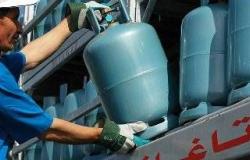Ayod County, Jonglei State, has been devastated by floods for six years. More than 70,000 residents, displaced by the rising waters of the Nile, found refuge along the Jonglei Canal. Cut off from the rest of the county by water, these displaced people are also isolated because of the volatile political situation in South Sudan: they live in a bastion of the armed opposition of Vice-President Riek Machar, who has gone to war against the president. Salva Kiir in 2013. A peace agreement was signed in 2018, but for the inhabitants of these areas, it remains a dead letter and the humanitarian crisis is worsening.
From our special correspondent in Paguong, Jonglei State,
Water lilies float in the stagnant water along the sea wall surrounding the village of Paguong, where more than 10,000 refugees live. Gatluok Chuol Dong, a local official, recalls how the community was repeatedly displaced by rising water: “ The floods pushed us east. We had to abandon our livestock and migrate to the canal. But its banks cannot accommodate a large number of people, so we decided to look for a place to build a dike to shelter our children and elders. This is how we built this dike. »
Owner of half a dozen cows that she milks every morning, Nyakuom Deng Jioknyang, 35, mother of three, confides that food is lacking: “ We had a lot of cows before the floods, but many died, these are the only ones we have left. » She shows a handful of round plants, cut in half, the inside of which is filled with white grains: “ These water lily bulbs are what allow us to survive. We collect them in water, dry them, turn them into flour to cook and eat them without any sauce, she explains. We only give cows’ milk to children, because there isn’t enough for us adults. »
Food aid is due to be flown in soon, so the community is cutting down trees to create a “drop zone” in the flooded forest.
Also readSouth Sudan: Pajiek, a climate refugee village on the Jonglei Canal [1/3]
-« If there was truly peace in South Sudan, people would not suffer like they are now »
Philip Kuon Roha, the head of the local administration, is supervising the work. Before the civil war began in 2013, he was a teacher in Ayod, the county capital, now controlled by the government. From a teacher, he became a fighter alongside the forces of Riek Macharat war against the government army until the 2018 peace agreement. An agreement which, according to him, has not been implemented:
« If there really was peace South Sudanpeople would not suffer like now. Before the war, we were in Ayod, we did not live in this remote corner, everyone lived together and worked. People farmed and raised their livestock. But when the fighting broke out, everything collapsed. I appeal to the international community so that this peace agreement is finally implemented and we return to normal life. »
The official hopes that reconciliation between the communities will be possible, so that residents of opposition strongholds can move freely.
Also readWar in Sudan: South Sudan in shock after army abuses in Wad Madani

![South Sudan: Flood victims in opposition-controlled areas struggle for survival [2/3]](https://euro.dayfr.com/temp/resized/medium_2025-01-20-2acaa16d59.jpg)




